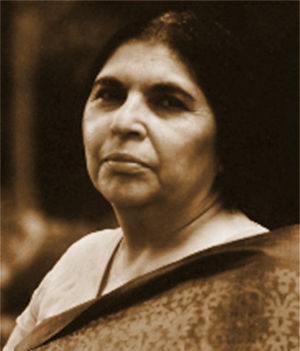Library Weekly
The ASCL's Library Weekly is our library’s weekly spotlight on African people and events. Inspired by the SciHiBlog, this service is based on information retrieved from Wikipedia and Wikidata and is completed with selected titles from the ASCL Library Catalogue.
N.B. The weeklies are not updated and reflect the state of information at a given point in time.
Library Weekly archive
Fatima Meer
 On 12 March 2010, South African writer, academic, screenwriter, and prominent anti-apartheid activist Fatima Meer died at St. Augustine's Hospital in Durban, aged 81. From the mid-20th century, she was one of the most prominent women political leaders in South Africa.
On 12 March 2010, South African writer, academic, screenwriter, and prominent anti-apartheid activist Fatima Meer died at St. Augustine's Hospital in Durban, aged 81. From the mid-20th century, she was one of the most prominent women political leaders in South Africa.
Fatima Meer was born on 12 August 1928 in Durban, South Africa, into a middle-class family of nine. Her father, Moosa Ismail Meer, was the editor of the anticolonialist newspaper 'The Indian Views', that also opposed South Africa’s white-minority government. When she was still a student at Durban Indian Girls’ High School, she mobilised students to found the Student Passive Resistance Committee in order to gather funds for the Indian community’s Passive Resistance Campaign from 1946 to 1948. Meer later attended the University of the Witwatersrand and the University of Natal, where she completed respectively a Bachelor's degree and Master's degree in Sociology.
For her role as an organiser and speaker in the 1952 Defiance Campaign, a multiracial civil-disobedience protest against apartheid laws, she was banned in 1952 for 3 years. The banning confined her to the district of Durban, prohibited her from attending all public gatherings and from having her work published. Despite her banning, she was one of the founding members of the Federation of South African Women (FEDSAW) which was established on 17 April 1954 in Johannesburg. In the 1960s, she organised night vigils to protest against the mass detention of anti-apartheid activists without trial outside Durban Prison.
In 1975, Fatima Meer co-founded the Black Women's Federation (BWF) with Winnie Mandela. Meer became the organisation's first president. A year later, she was banned again for a period of five years. In June 1976, after the Soweto Uprisings, Meer, along with Winine Mandela and eleven other women from the BWF, were arrested and detained under Section 6 of the Terrorism Act. They were placed in solitary confinement at Fort Prison in Johannesburg. Meer narrowly survived an assassination attempt shortly after her release from detention in 1976 when she was shot at her family home in Durban, but she was not harmed.
After the establishment of democracy in South Africa in 1994, Meer declined the offer of a seat in parliament because she preferred to focus on non-governmental work.
Meer was a lecturer of sociology and a staff member of the University of Natal from 1956 to 1988. She was the first non-white person to hold that position. She was also a visiting professor at a number of universities abroad. Meer became a fellow of the London School of Economics, and received three honorary doctorates.
(Source: Wikipedia)
Selected publications
Fatima Meer : a free mind / Shireen Hassim. - Cape Town, South Africa : HSRC Press, [2019]
Fatima Meer : memories of love and struggle / Fatima Meer. - Cape Town : Kwela Books, 2017
'Sister outsiders' : the representation of identity and difference in selected writings by South African Indian women / Betty Devarakshanam Govinden. - Pretoria : University of South Africa Press ; Leiden : Koninklijke Brill
cop. 2008
Prison diary : one hundred and thirteen days, 1976 / Fatima Meer. - Cape Town : Kwela Books, 2001
Higher than hope : a biography of Nelson Mandela / Fatima Meer. - London : Hamish Hamilton, cop. 1990
The trial of Andrew Zondo / Fatima Meer. - Harare : Baobab Books, 1988
Race and suicide in South Africa / Fatima Meer. - London [etc.] : Routledge and Kegan Paul, 1976
The ghetto people : a study of the effects of uprooting the Indian people of South Africa / Fatima Meer. - London : Africa Publications Trust, 1975

